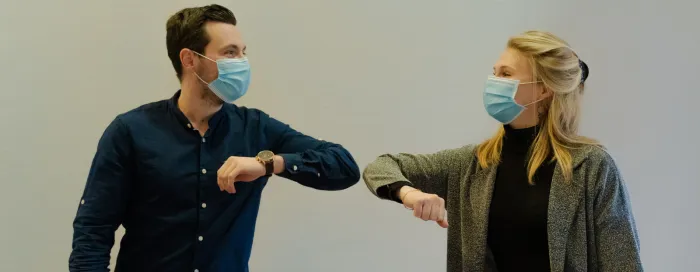The European Commission proposed the Health Emergency Preparedness and Response Authority (HERA) as early as last year to strengthen the EU's capacity to respond to the COVID-19 pandemic and to prevent, detect and respond quickly to health threats.
The COVID-19 pandemic has reminded European policymakers of the importance of European cooperation and solidarity. The crisis has also highlighted how damaging it can be to lose sight of the public interest and the principles of fairness when dealing with deadly health emergencies. This is why the new authority will be responsible for monitoring and identifying potential cross-border health emergencies, ensuring the availability of medicines and treatments by promoting European public procurement and facilitating coordination between Member States.
Our member Christophe Clergeau, PES Group, who is a member of the Pays de la Loire Regional Council and national secretary of the Socialist Party in charge of Europe, has been appointed rapporteur for the HERA dossier at the European Committee of the Regions. We asked him about the issues related to the creation of this new authority and the role of local and regional authorities in its governance.
Why do we need a new European authority to respond to health emergencies?
Health and environmental risks have become global; we need a global and solidarity-based response at the level of the European Union (EU) to protect Europeans, especially the most fragile among us. This must be done with respect for the competences of the individual countries, but based on an ambitious and proactive vision.
How should HERA operate? Why should local and regional authorities be involved in its governance?
The protection of human health is at the heart of the Treaties and an essential EU requirement. The European Parliament, the interests of EU citizens, cannot therefore be left out. Regions have major competences in the field of health in more than a third of the Member States. So we must take an inclusive approach involving Parliament and the regions, as well as healthcare staff, patients, and all health operators. That is not yet the case and I regret that.
Do you consider the budget allocated to HERA by the European Commission to be sufficient for its proper functioning?
EUR 1.8 billion has been committed for 2022 and only 6 billion has been planned for 6 years, which is obviously insufficient. To be able to react to major crises, HERA must be able to mobilize EUR10 billion at any time, this is the lesson of the COVID-19 crisis.
What should the European Union do to strengthen its strategic autonomy to deal with future crises, particularly in terms of manufacturing medical countermeasures, but also in terms of research and innovation?
If we want to regain our health sovereignty, that is to say, to produce the medicines and medical countermeasures that we need to protect Europeans in Europe, then we will have to agree to pay more for them and to be able to strengthen the industrial fabric. We must also review our rules on competition and the regulation of state aid. If we do not, the promise of health sovereignty will be a false promise that is impossible to keep.
COVID-19 has highlighted the inequalities between regions and social inequalities in access to care and inoculation, which undermined the response to health crises and endangered Europe as a whole. How would a health security vulnerability scoreboard strengthen the health systems and consolidate equal health coverage of regions and communities?
To combat inequalities, we must first identify and highlight them. In order to protect people and provide them with the assistance they need, we need to know who the most vulnerable categories are and where they are. It is this information that we want to produce and make available at European level. It will also help Member States that are responsible for the health care system.
© Photo credits: Maxime from Unsplash
